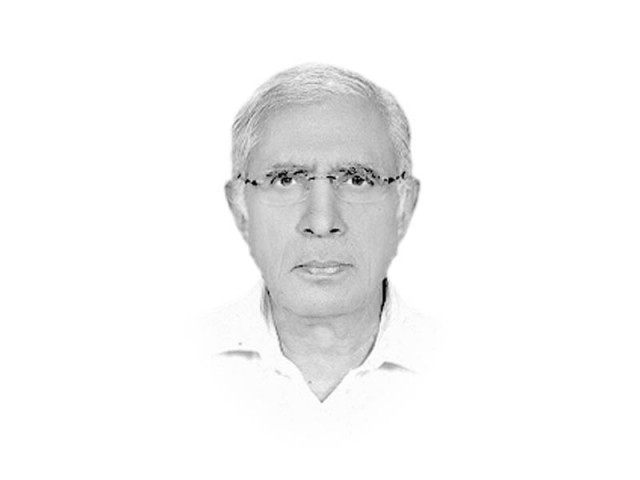Tackling inequality
Inequality within moderate to poor countries is increasingly denying millions access to even two square meals a day

The writer served as Executive Editor of The Express Tribune from 2009 to 2014
So inequality is spreading globally, between the developed and developing countries as well as within the developed and developing countries. This expanding inequality within moderate to poor countries is increasingly denying millions access to even two square meals a day while their own far less than one per cent of richest live a lifestyle that would shame even the millionaires of rich countries. Pakistani poor are no exception. They are swimming in abject poverty while their rich and famous rush to London for medical treatment, send their children to the most expensive colleges in the US and Europe and let their extended family set up shops in foreign lands.
With emphasis on pure growth, without any concern for equity but not even achieving the needed growth rate, which in normal circumstances would amount to not less than 10-12 per cent for the trickle-down theory to become really effective thanks to the IMF’s insistence on macroeconomic stability, developing countries like Pakistan continue to suffer from expanding inequality in troubled silence. One way of tackling the problem is to spend your way out of the crisis by borrowing and printing currency and spending the amount on creating jobs that would put spending cash in the hands of the poor, leading to increase in demand that would stimulate supplies.
The other way is the De Soto way. The world famous Peruvian economist has his own theory about how to bridge the gap between the rich and the poor. The main message of his work is that no nation can have a strong market economy without adequate participation in an information framework that records ownership of property and other economic information. Unreported, unrecorded economic activity, according to him, results in many small entrepreneurs who lack legal ownership of their property, making it difficult for them to obtain credit, sell the business, or expand. He says, they cannot seek legal remedies to business conflicts in court, since they do not have legal ownership. Lack of information on income prevents governments from collecting taxes and acting for the public welfare.
“The existence of such massive exclusion generates two parallel economies, legal and extra legal. An elite minority enjoy the economic benefits of the law and globalisation, while the majority of entrepreneurs are stuck in poverty, where their assets — adding up to more than $10 trillion worldwide — languish as dead capital in the shadows of the law. To survive, to protect their assets, and to do as much business as possible, the extra-legals create their own rules. But as these local arrangements are full of shortcomings and are not easily enforceable, the extra-legals also create their own social, political and economic problems that affect the society at large.”
The Peruvian economist believes that the real enemy is within the flawed legal systems of developing nations that make it virtually impossible for the majority of their people — and their assets — to gain a stake in the market. He says that what the poor majority in the developing world do not have is easy access to the legal system which, in the advanced nations of the world and for the elite in their countries, is the gateway to economic success, for it is in the legal system where property documents are created and standardised according to law. Documentation permits society to engage in such crucial economic activities as identifying and gaining access to information about individuals, their assets, their titles, rights, charges and obligations; establishing the limits of liability for businesses; knowing an asset’s previous economic situation; assuring protection of third parties; and quantifying and valuing assets and rights. This in turn facilitate such opportunities as access to credit, the establishment of systems of identification, the creation of systems for credit and insurance information, the provision for housing and infrastructure, the issue of shares, the mortgage of property and a host of other economic activities that drive a modern market economy.
Published in The Express Tribune, May 28th, 2016.
Like Opinion & Editorial on Facebook, follow @ETOpEd on Twitter to receive all updates on all our daily pieces.














COMMENTS
Comments are moderated and generally will be posted if they are on-topic and not abusive.
For more information, please see our Comments FAQ